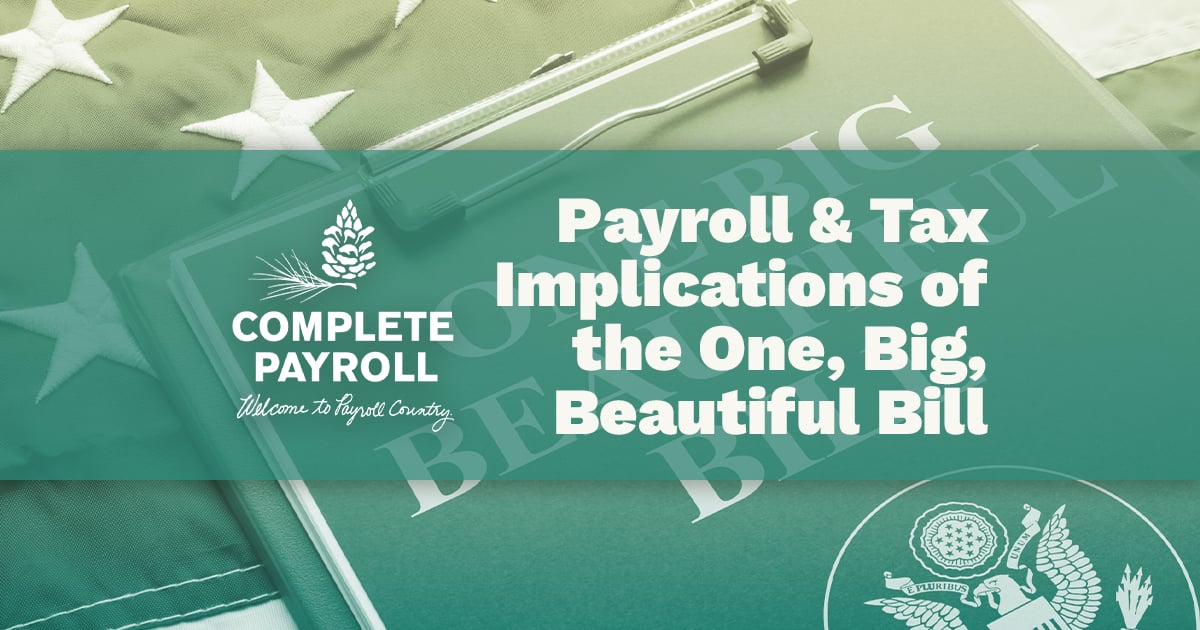
Hiring your first employee or employees can feel like a huge step in the growth of your small business. It can also be an intimidating process, full of paperwork, hard decisions, and maybe even feeling like you’re in over your head.Here are some of the things we’ve learned in our twenty-six years of helping thousands of employers hire millions of employees. Keeping these best practices in mind will help you keep your cool during the hiring process.
Best Hiring Practice #1: Don’t hire a full-time employee too early.
In the early days of a small business, especially when you’re first experiencing real growth. You may be anxious to leave behind some of the more tedious tasks of running the business by bringing someone else into the company to take care of those things— that excitement is understandable. However, we caution you to be conservative in your decision making. Hiring your first full-time employee is a huge commitment, and you need to be on solid ground before making that call.
Our experience suggests that you should have at least 6-12 months of the new hire’s salary available before you onboard anyone, because then you won’t find yourself making the hard decision between making payroll or paying bills.
Best Hiring Practice #2: When you interview candidates, watch for the person who contributes to the culture you want to build.
In small businesses, every individual can play a huge role in building the company culture. The smaller the business, the more influence each person has in the group. Thinking about what you want your company culture to be like is an important step to take before hiring. Do you want your company to be innovative and forward-thinking above all us? Is your goal to feel like one big family? Do you want people who will commit to spend as much time as possible on the job, taking work home and making their job a huge part of their life? Or do you want to have people who are good at compartmentalizing the various aspects of their lives and will prioritize a strong work/life balance?
Every hiring manager knows the importance of hiring for skill, experience, and education level, but you should also be looking for people who will contribute to the culture you want to build in your company.
Best Hiring Practice #3: Keep in mind that we’re in a candidate-driven market.
Candidate-driven economies are great for job seekers, but they pose unique challenges for employers who want to hire someone new. In this kind of market, there are more jobs available than there are qualified applicants, which means that job applicants have a lot of freedom to wait for the perfect position or salary to come along.
They often are not feeling a lot of pressure to impress you or get a job offer from you because they know they are going to get several offers and can pick their favorite one. We recommend that you figure out how you can stand out as one of the favorites.
For example, show them the opportunity they have to influence your company’s culture. Help them understand the exciting opportunities that come with being an early employee of a startup that has tons of potential. Make a serious, competitive salary offer with an equally competitive benefits package. And don’t delay! Today’s candidates want fast replies and efficient communication.
Best Hiring Practice #4: If you’re intimidated by the paperwork, bring in help.
There is so much paperwork involved with becoming an employer. Some of the things you need to file include:
-
Federal Employer Identification Number (FEIN)
-
State Employer Identification Number
-
W-4 (income tax withholding form)
-
I-9 (worker’s eligibility form)
-
State unemployment insurance
-
Worker’s compensation insurance application
-
Forms for all other forms of insurance you will provide to your employees (dental, vision, short and long term disability, etc)
Each form requires attention to detail and timeliness. If you are worried about this process, there are companies like ours who can help! Complete Payroll serves in a Human Resources capacity for thousands of small and midsize employers around the country. We are more than happy to work with startups who are just getting their feet wet in the employer pool.
We’ve put together an informative list of hiring details that you must know before hiring your first employee. Check it out and let us know what questions you have and how we can serve your business as it begins to grow and thrive!

















 Get Instant Blog Notifications
Get Instant Blog Notifications


